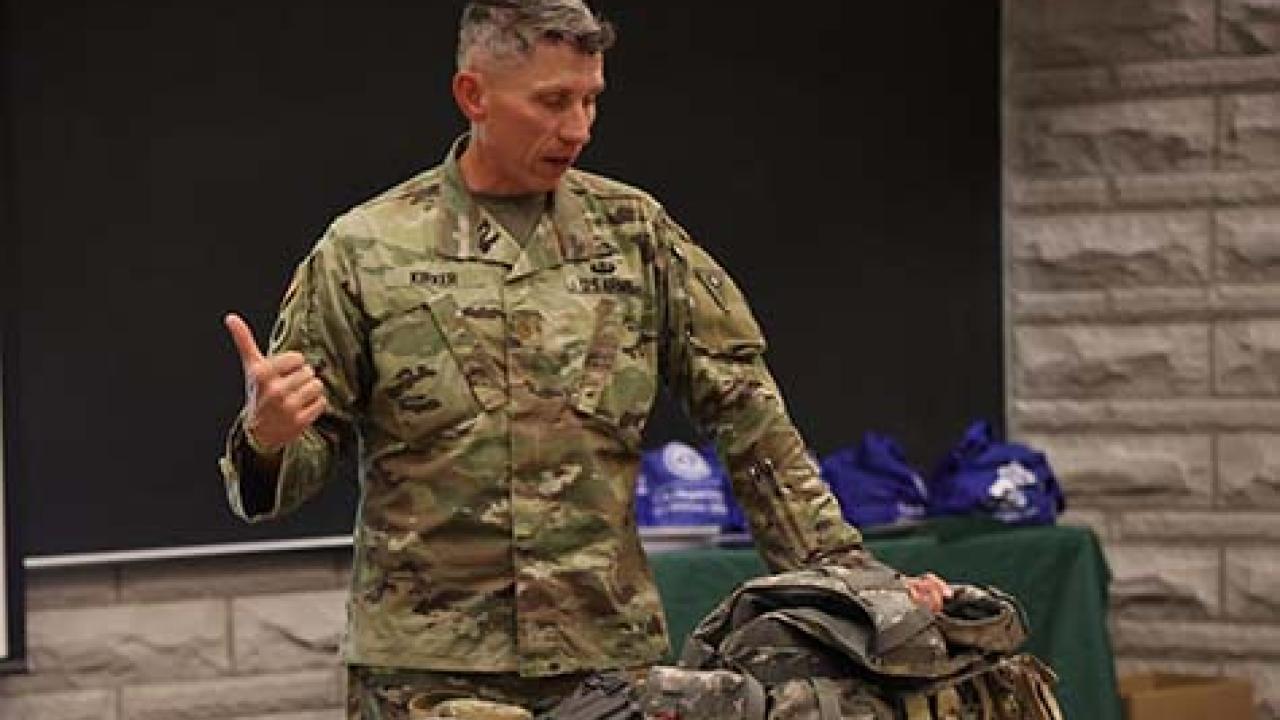“As an academic program specialist, I can use the knowledge gained from the SBHP training by advocating and helping military personnel and their families make informed decisions about their academic career based on their military affiliation,” Stewart said. “Military families may experience challenges and difficulties that are often related to military service. It is critical that, just as you would with any other population or demographic, you make the discussion relevant to their educational needs when it comes to the college-search process.”
SBHP is a system for improving the quality of and access to behavioral health services to service members, veterans, and the people that care for them. The program is a new initiative developed through a collaboration with the Ohio National Guard, Ohio Department of Mental Health and Addiction Services, Ohio Department of Veterans Services, The Ohio State University, American Red Cross, OhioCares, the Military Family Research Institute (MFRI) at Purdue University and the Center for Deployment Psychology. The launch of the program in Ohio is funded through a subcontract from MFRI from the Wounded Warriors Project.
According to Brei E. Miller, program manager for the Ohio Valley Center for Brain Injury Prevention and Rehabilitation team, SBHP is a three-tiered series of trainings for clinicians and others who work with veterans and their families. Tier One is very resource-based and done in person by the Ohio National Guard. Tier Two is available online nationally and Tier Three will be held in person in Columbus.
The Tier One class hosted at Ohio State Lima drew attendees from across the state and offered a military 101 cultural competency of sorts for participants.
“Throughout the whole day we talk about resources and try to connect them so that they understand all the different benefits that veterans can have and try to break down a little bit of the nuances between being a guard soldier, being active duty, being a veteran and what services and resources they can get while we wrap that all into kind of a military 101 from learning the ranks, to deployments, to different deployments, to just generally understanding military life in general,” said Major David I. Kirker, director of psychological health for the Ohio Army National Guard, LISW-S.
That better understanding of military culture and knowledge of deployments and its effects was Stewart’s biggest takeaway from the day.
“I feel more aware and sensitive to the unique challenges faced by our military population on the Ohio State Lima campus and will advocate for services for this population and refer them to the appropriate services available on campus, such as counseling and consultation, diversity and inclusion, and veterans affairs,” Stewart said.
Chad Welker, an OEF/OIF Marine Corps veteran who works with other veterans as part of his job on the Ohio State Lima student life team, had attended similar trainings while working with the Wounded Warrior Project and was happy to see the Star training offered on campus.
“It is so important for us to have access to the tools and resources available to our service members so we can help connect veterans and their families to all that is available to them,” Welker said.
Welker plans to attend the Tier 2 training and will incorporate what he learns into the veterans’ experience on campus.
Helpful links
Star Behavioral Health Providers Program
Ohio State Lima Veteran’s Affairs Office
Meet Ohio State Lima sources

Asiah Stewart is an academic program specialist at Ohio State Lima.

Chad Welker is the coordinator of recreational sports at Ohio State Lima and an OEF/OIF Marine Corps veteran.
